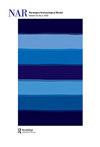Decoupling ‘Open’ and ‘Ethical’ Archaeologies: Rethinking Deficits and Expertise for Ethical Public Participation in Archaeology and Heritage
IF 1.1
3区 历史学
0 ARCHAEOLOGY
引用次数: 15
Abstract
In this article I caution the assertions made in the 2018 volume of NAR on the future of archaeology that archaeology is well on its way to decolonising itself and that ‘open’ archaeologies that invite public participation and utilise new digital technologies are inherently ethical. I begin by critiquing the exclusively positive connotations of archaeology, digital technologies and public participation, before drawing on critiques of the ‘simple deficit model’ within science communication, which I argue are equally applicable to public archaeology. I use the ‘simple deficit model’ and a review of shifting perspectives on legitimate heritage expertise to lay the foundation for an archaeology that is both ‘open’ and ‘ethical’. I conclude that, as in science communication, such an archaeology requires archaeologists to develop more accurate understandings of both archaeology and publics.解耦“开放”与“伦理”考古学:重新思考考古学与遗产中伦理公众参与的缺陷与专业知识
在这篇文章中,我提醒2018年《国家考古研究报告》关于考古学未来的一卷中的断言,即考古学正朝着非殖民化的方向发展,邀请公众参与并利用新数字技术的“开放”考古本质上是合乎道德的。我首先批评考古学、数字技术和公众参与的纯粹积极内涵,然后引用对科学传播中“简单赤字模型”的批评,我认为这同样适用于公共考古学。我使用“简单赤字模型”和对合法遗产专业知识视角转变的回顾,为“开放”和“道德”的考古学奠定基础。我的结论是,就像在科学传播中一样,这样的考古学需要考古学家对考古学和公众有更准确的理解。
本文章由计算机程序翻译,如有差异,请以英文原文为准。
求助全文
约1分钟内获得全文
求助全文
来源期刊

Norwegian Archaeological Review
ARCHAEOLOGY-
CiteScore
2.10
自引率
0.00%
发文量
13
期刊介绍:
Norwegian Archaeological Review published since 1968, aims to be an interface between archaeological research in the Nordic countries and global archaeological trends, a meeting ground for current discussion of theoretical and methodical problems on an international scientific level. The main focus is on the European area, but discussions based upon results from other parts of the world are also welcomed. The comments of specialists, along with the author"s reply, are given as an addendum to selected articles. The Journal is also receptive to uninvited opinions and comments on a wider scope of archaeological themes, e.g. articles in Norwegian Archaeological Review or other journals, monographies, conferences.
 求助内容:
求助内容: 应助结果提醒方式:
应助结果提醒方式:


